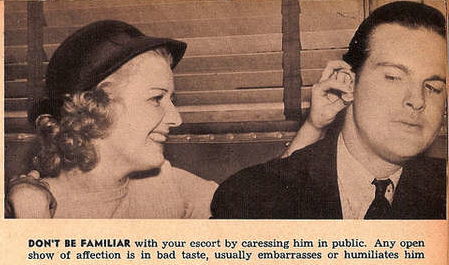Please welcome our guest today, Nancy Adams. Nancy is a librarian, freelance editor, and writer of mysteries and fantasy. Her short story "Saint Nick and the Fir Tree" has just come out in both e-book and print formats. Another short story, "The Secret of the Red Mullet," a historical mystery, is published in FISH TALES: the Guppy Anthology (Wildside Press, 2011). Nancy is a member of Mystery Writers of America and Sisters in Crime. In her spare time she reads, sleeps, and whacks the occasional dust bunny. Find out more about Nancy and her writing at: http://nancyadamsfiction.com.
Trees and humans have very different ideas about what constitutes food. In the plant kingdom, there are no leftovers. Everything is used. Nourishing humus from decomposing leaves, the natural fertilizer of manure . . . What humans call waste. Leftovers.
Potato peelings left from Thanksgiving's mashed potatoes. Apple peelings from that homemade apple pie. Not exactly leftovers, but left behind nevertheless. These can turn into food for plants. Not in their current raw state, but cook a few months in a well maintained compost pile, et voila! They break down and join the rest of the compost ingredients, the perfect dish as far as plants are concerned.
There's a scene in "Saint Nick" where the Saint and the Tree are sitting in a diner. Fir Tree's become mobile, thanks to Nick's magic, but eating human food is another matter. When the Tree says there's nothing on the menu it can eat, Nick responds:
"Then keep quiet and suck on your soil. I'm starving. Just order a salad or something."
"A salad!" The thought made me so queasy, my sap almost burst through my bark. "That'd be cannibalism!"
Thinking about that scene now, in the context of compost, logically the "cannibalism" makes less sense. But emotionally, it resonated. It wasn't something I thought about: the words just tumbled out and felt right. Perhaps Tree's reaction mirrors the revulsion some of us experience at the thought of eating raw meat. Or eating fish when that big eye is staring at you out of the plate. Once salad ingredients are composted and "served" to the plant, any resemblance to green, living matter has vanished. Many of us prefer our meat dishes the same way.
In Fir Tree's world, human leftovers mean a bonanza for plants. No meat or oils, but anything left over from chopping or peeling vegetables or fruit. When I first read about compost, it appealed to the romantic in me: Nature's mysterious alchemy, transforming dross into gold.
Our own compost bin, out in the backyard, is sadly neglected these days. What with a full-time job and writing on weekends, I give it only minimum care. Dollops of vegetable leavings, but no fancy turning or layering or watering. Bags of manure get dumped in from time to time, and leaves in the fall. Someday, I say. Someday when I'm no longer working the day job, I'll take better care of the plants in our yard.
For now, I write about them. They'll have to be content with that.
Trees and humans have very different ideas about what constitutes food. In the plant kingdom, there are no leftovers. Everything is used. Nourishing humus from decomposing leaves, the natural fertilizer of manure . . . What humans call waste. Leftovers.
Potato peelings left from Thanksgiving's mashed potatoes. Apple peelings from that homemade apple pie. Not exactly leftovers, but left behind nevertheless. These can turn into food for plants. Not in their current raw state, but cook a few months in a well maintained compost pile, et voila! They break down and join the rest of the compost ingredients, the perfect dish as far as plants are concerned.
There's a scene in "Saint Nick" where the Saint and the Tree are sitting in a diner. Fir Tree's become mobile, thanks to Nick's magic, but eating human food is another matter. When the Tree says there's nothing on the menu it can eat, Nick responds:
"Then keep quiet and suck on your soil. I'm starving. Just order a salad or something."
"A salad!" The thought made me so queasy, my sap almost burst through my bark. "That'd be cannibalism!"
Thinking about that scene now, in the context of compost, logically the "cannibalism" makes less sense. But emotionally, it resonated. It wasn't something I thought about: the words just tumbled out and felt right. Perhaps Tree's reaction mirrors the revulsion some of us experience at the thought of eating raw meat. Or eating fish when that big eye is staring at you out of the plate. Once salad ingredients are composted and "served" to the plant, any resemblance to green, living matter has vanished. Many of us prefer our meat dishes the same way.
In Fir Tree's world, human leftovers mean a bonanza for plants. No meat or oils, but anything left over from chopping or peeling vegetables or fruit. When I first read about compost, it appealed to the romantic in me: Nature's mysterious alchemy, transforming dross into gold.
Our own compost bin, out in the backyard, is sadly neglected these days. What with a full-time job and writing on weekends, I give it only minimum care. Dollops of vegetable leavings, but no fancy turning or layering or watering. Bags of manure get dumped in from time to time, and leaves in the fall. Someday, I say. Someday when I'm no longer working the day job, I'll take better care of the plants in our yard.
For now, I write about them. They'll have to be content with that.










































